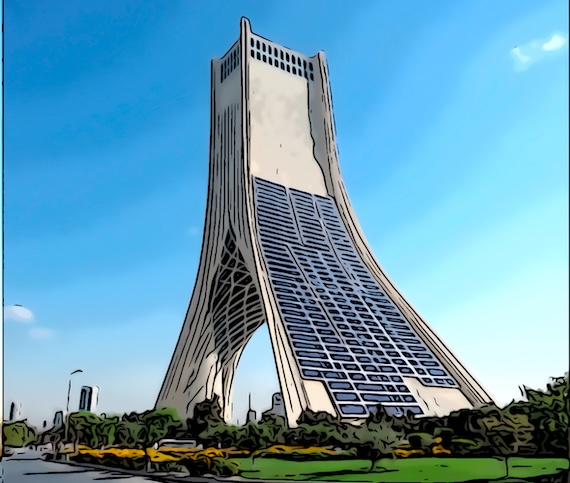Ann Arbor (Informed Comment) – Iran has for weeks been in the midst of an energy crisis. It may seem paradoxical given that it has some of the biggest oil and gas fields in the world. Some 70% of Iran’s electricity is generated by fossil gas. Power blackouts have inflicted billions of dollars of losses on Iran’s industries.
Here’s another irony. Solar panels are the solution to Iran’s woes, even if it has all those oil and gas fields under the ground. It is better for everyone, and especially for Iran if the carbon locked up in those fields is never pumped into the atmosphere, where it will act like a planetary Bunsen burner.
The energy crisis has several roots. The country has been under US and international sanctions for nearly two decades. They have made it impossible for Iran to attract investment in its gas fields, which it shares with the small Gulf nation of Qatar. In contrast, Shell and other multinationals are heavily invested in Qatar’s side of the underground gas field and are vastly expanding production. Iran has fair relations with Qatar but there is some tension over all this, since Iran’s access to the same fields is blocked by sanctions.
The sanctions also interfere with the importation of equipment and materiel essential to the gas industry, which has therefore become backward and ramshackle.
Farnaz Fasihi wrote at The New York Times in mid-December that in February Israel destroyed two gas pipelines in Iran as part of its clandestine conflict with the ayatollahs. Consequently, she said, the government discreetly accessed emergency gas reserves to prevent service interruptions for millions. The government of the late prime minister, Ebrahim Raisi, secretly drew down reserves to avoid outages in the aftermath of this strike, but the reserves went only so far.
Israel’s strike on civilian infrastructure was a war crime.
The Iranian state is also just not very good at its job, and mismanagement is part of the problem.
Finally, the sanctions on Iran include kicking it off the major currency exchanges and making trade in riyals difficult. The riyal has been cratering against the dollar.
What would you do if your life savings were dwindling in value daily, and you couldn’t even use them to buy imported goods?
You might mine some bitcoin. Cryptocurrency, though, is a huge energy hog, and some analysts suspect it has added to Iran’s energy crunch. Individuals and businesses are suspected of illegal cryptocurrency mining and of spreading out the load to avoid detection, reducing access to power on the part everyone else.
Finally, in the summer the temperatures have risen because of human-caused climate change, i.e. from burning Iran’s and other countries’ oil and gas, and there are enormous air-conditioning demands in the summer months, way up from previous years.

“Azadi Tower Solarized,” Digital, Midjourney, 2024.
Solar panels would solve Iran’s electricity problems, including air conditioning and winter heating. Iran has vast deserts like the Dasht-i Kavir, where you could place the panels without interfering with humans, farming, or other land use. So it has room for PV. Not every country has this advantage.
Iran can import inexpensive Chinese panels. It has excellent relations with China, which has found ways around US sanctions on Iranian trade. Private Pakistani citizens and small businesses added 17 gigawatts of solar power to Pakistan in 2024, just importing photovoltaic panels made in China despite the lack of government support. Pakistan’s energy crisis makes Iran’s look like a walk in the park.
Iran also has a fair industrial base and an excellent scientific establishment, and Iranians could make their own panels if they wanted to. It would be far more remunerative than investing in nuclear power.
Iran could deploy community and neighborhood solar, which would make it harder for an enemy to knock out the whole grid.
According to Azerbaijan’s Trend News Agency, Iran has an electricity generation capacity of about 93 gigawatts. Its power plants put out 76 gigs, mostly from fossil gas, and it gets another 2.4 gigs from retail power plants. Iran has 12 gigs of hydro. The Bushehr nuclear plant produces about a gigawatt. and it has 0.4 gigawatts of diesel electricity production. Its renewable installations at the moment produce only 1.1 gigs.
Just last week, President Masoud Pezeshkian announced plans to substantially increase solar and wind power generation. He has ordered all government office buildings to have solar panels on their roofs by this coming summer.
The renewable energy and Energy Efficiency Organization (SATBA) of Iran is inviting bids for new renewable electricity plants. The agency plans to add 500 megawatts of new renewable production by March.
The question is whether Pezeshkian can move toward renewables quickly enough to avert a budding economic, social and environmental meltdown.


 © 2025 All Rights Reserved
© 2025 All Rights Reserved